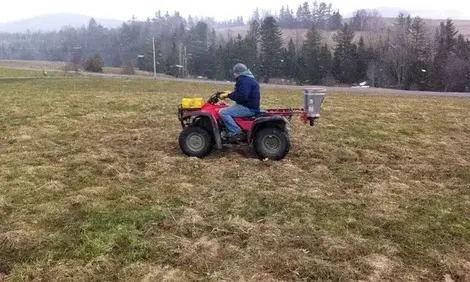



Genetics Now Next Step for Dairy Bull Calves
UK - More male dairy calves are incorporated into the beef supply chain than in 2006, benefiting welfare, farm profits and industry sustainability, although the story is far from over.Genetics is the next key step in further improving the future of male dairy calves, say industry experts.
Other measures include innovative steps, such as utilising sexed semen, producing more steers instead of bulls and using breeding values to produce robust male calves, with further emphasis put on feeding colostrum.
This is according to industry reaction to the release of the Beyond Calf Exports Stakeholders Forum report.
Economic potential is central to the success. Holstein bulls and steers can be worth £50-£100 ex-farm and reach an end product value of £1,000, stated the forum.
The forum’s report, The Modern Solution to the Exports of Calves: Working in Black and White, published last month, was successful in achieving three goals, laid out in 2008.
These were: to increase uptake of dairy males in the beef chain, which rose by 58 per cent; reduce number of calves killed onfarm, which fell by 36 per cent; and decrease the number of animals exported for finishing, which it reduced by 90 per cent, to 8,000 from 80,700.
Prior to the Bovine Spongiform Encephalopathy outbreak, around half a million dairy calves were exported from the UK each year, the report stated.
Success has been achieved by a colloborative effort across the whole industry that included producer organisations, supermarkets, processors and government bodies.
The RSCPA (Royal Society for the Protection of Cruelty to Animals) and Compassion in World Farming led the forum to find ‘realistic and economically viable solutions’ to shooting or exporting bull calves.
David Bowles of the RPCA said the stakeholder forum shows how producer, retailer and industry groups can cooperate for success.
Several supermarket initiatives have raised the profile of welfare friendly dairy beef and veal. However, geneticists now say the improved market potential must be addressed by ensuring more muscular calves.
Professor Mike Coffey from the Scottish Rural University College and Marco Winter, head of genetics at DairyCo both expect to see new genetic data improve the size of male dairy calves.
"Genetics has a key role to play in determining the beef potential of dairy-bred bull calves,” said Mr Winters. “For more than a decade, the weighting of selection within the UK system of genetic evaluations (Profitable Lifetime Index) has increasingly been directed towards fitness traits.”
Bull calf vitality is now being realised on a national level as it has filtered through the herd. This is positive for both cow health and bull calf quality, explained Mr Winters.
This will be augmented in 2015, with the introduction of estimated breeding values compiled from abattoir data funded by DairyCo, EBLEX and HCC.
Not only will this improve better returns from milk production, but also realise more dairy calves as a meat asset, according to Scotland Rural College Professor, Mike Coffey.
He said: “A long term breeding solution alongside short term strategic options will ensure more male Holstein calves enter the food chain as a valuable asset”.
“We are happy to have been involved with the Forum from the outset and were particularly keen to see genetic improvement of Holstein bull calves for muscularity as a method for improving their value to the beef chain."
George Jamieson, dairy policy director at NFU Scotland said: "The value of beef from the dairy sector is clear, certainly to NFU Scotland and the Forum has helped to highlight technical and commercial initiatives which have helped to make further progress in ensuring the value of dairy beef is captured."
The Forum has explained that progress will continue to be hindered by tuberculosis and subsequent cattle movement restrictions, which were placed on 26 per cent in the West Midlands and South West last year.
However, last year, the agricultural ministry (Defra) started to note positive feedback in the success of approved finishing units; farms that bought from affected herds and raised bulls calves to specific requirements.
A total of 40 units had been approved in the across the South West and West midlands, in the nine months from beginning in October 2012 and June 2013, moving over 6,000 calves.
Michael Priestley
News Team - Editor
Mainly production and market stories on ruminants sector. Works closely with sustainability consultants at FAI Farms



